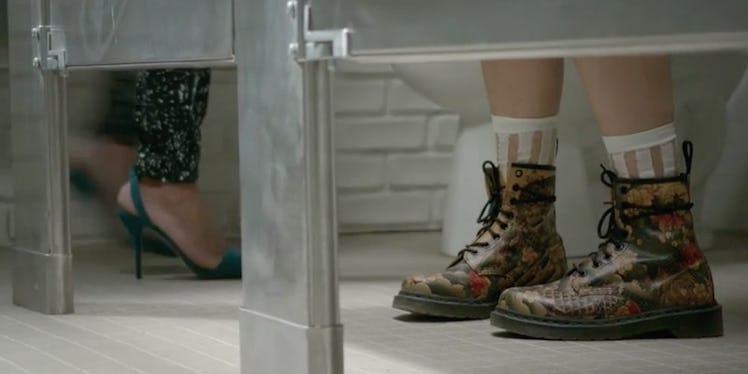
5 Health-Related Reasons You Shouldn't Feel Weird About Pooping At Work
Women are made of all things nice, so pooping and ladies don't mix in the general public's conception.
There are many funny stories and even funnier videos linked to this idea, so women develop a sort of fear of pooping outside their own houses.
While men often poop anywhere and everywhere, including at work, women are always avoiding it.
Pooping at work is taboo for women, but unfortunately, people have to poop from three to 20 times a week, and there are high chances your bowel movements will take place during work hours, as most Americans spend about 47 hours per week at their workplaces.
While men have no problem with pooping at work, women often experience a high level of anxiety when it comes to bowel movements.
The internet is full of stories featuring women who tried to put their legs up while pooping, so their colleagues won't recognize them, or going to another floor for pooping or even outside the building they are working in.
At the same time, I do understand a woman's fear of pooping at work.
You don't want to hear your colleague while she is dropping a deuce. And you definitely don't want to be missing for 10 or more minutes from the office and then show up from the bathroom, with everyone knowing what you were doing in there.
But pooping is like childbirth: You can't stop it.
And there is a good reason for this. If you try to prevent pooping, your health might suffer, and you might even suffer a stroke.
According to medical professionals, holding in your poop from time to time is OK, but doing it frequently leads to constipation.
At the first look, constipation is not that bad, but think again.
Alison Chen, ND, author of “What Your Poo Says About You” says that keeping a poo inside makes your body absorb all the moisture in the poop.
This makes it harder to expel, which leads to a whole new array of health related problems.
The consequences of constipation can be deadly, as poop is made of water, bacteria, undigested food, proteins, fats, salts and mucus.
While constipation won't cause your bowels to press on the lungs and prevent you from breathing, it will cause a lot of problems.
1. You can develop anal fissures.
When you become constipated, your stool lacks the lubrication needed to slide down the colon.
This means you will have to struggle a lot to pass it on, and the chances of getting anal tears are high. When this happens, you are likely to see blood in your stool and on the toilet.
However, the blood might come from other conditions too, so you need to make sure it comes from anal fissures.
If you continue to feel pain when passing a stool and blood is still present after using laxatives, you need to check with a doctor as soon as possible.
2. You can also develop diverticulitis.
Another side effect of constipation is diverticulitis, the appearance of bulges on the inside lining of the colon.
They usually appear after straining, but the real problem is they can get infected if waste pieces get trapped on them.
As you can imagine, this is not something you can take easily, especially because the toxins in the stool can end up in your blood stream.
3. Too much straining can lead to a stroke.
While ensuring regular bowel movements is not on the list of ways to prevent heart diseases, constipation is linked to strokes.
The principle is simple and deadly: Too much and too hard straining creates pressure in the chest, which increases the risk of having a heart attack.
A study conducted by the Women's Health Initiative of more than 90,000 women revealed that severe constipation can increase the risk of cardiovascular disease in postmenopausal women.
At the same time, researchers believe there is a connection between the increased risk of cardiovascular disease and the inflammatory process caused by constipation, which can accelerate the development of cardiovascular disease.
4. Waste build-up takes you to hospital.
Being constipated for a long time can lead to stool buildups, also called impaction.
This is a severe health condition that can jeopardize your life.
If you are not able to pass on the poo for several days or weeks – it depends on how you feel, as constipation is defined as not pooping for several days or several weeks by different sources – you need to address the doctor immediately.
5. Constipation can lead to leaks.
Prolonged constipation has unwanted effects on your bladder, too.
As the muscles in your pelvic area are pressured by a full colon, which is also pressing on the bladder, you might experience leaks.
If you are lucky, you will just have to pay more visits to the bathroom, but either way, you will have trouble with your bladder control.
Bottom all, pooping at work is not just a sign of feminism, but also a sign of taking care of your health.